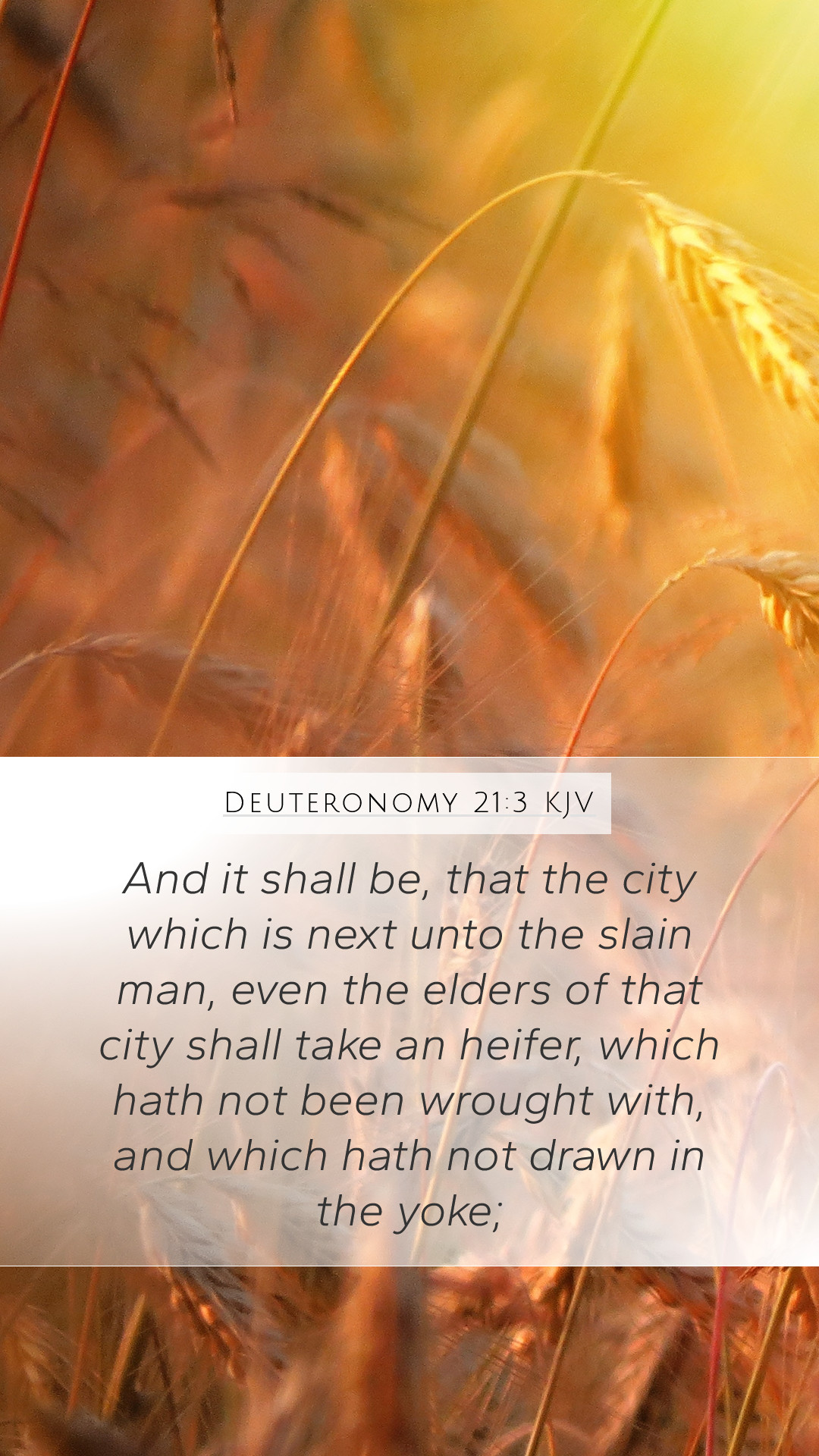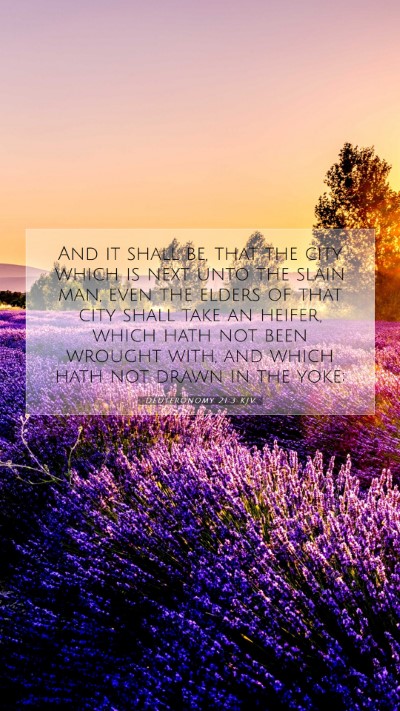Understanding Deuteronomy 21:3 - Insights and Biblical Commentary
Deuteronomy 21:3 provides a specific instruction regarding the process of dealing with a slain person in a field, which holds significant implications both socially and spiritually. By examining this verse, we seek to gain a deeper understanding of its meaning, relevance, and applications in contemporary life.
Bible Verse (Deuteronomy 21:3)
"And it shall be, that the city which is next unto the slain man, even the elders of that city shall take an heifer, which hath not been wrought with, and which hath not pulled in the yoke."
Context and Background
The context of Deuteronomy 21:3 is crucial for understanding its implications. This chapter addresses various laws for Israel, particularly around issues of crime and atonement. The principle of ensuring justice and honoring the deceased reflects God’s concern for social order and righteousness.
Interpretation and Analysis
Commentators such as Matthew Henry, Albert Barnes, and Adam Clarke provide valuable insights into this verse:
-
Matthew Henry's Commentary:
Henry emphasizes the significance of the elders' role and the symbolic nature of the heifer, which represents innocence and untainted purity. The act serves to atone for the bloodshed and highlights the community's responsibility in maintaining justice.
-
Albert Barnes' Notes:
Barnes notes that the selection of a heifer that has not been used for labor symbolizes the offering’s purity and the seriousness of atoning for wrongdoing. This act reinforces the communal aspect of bearing responsibility for the crime committed within the boundaries of the city.
-
Adam Clarke's Commentary:
Clarke elaborates on the legal and moral implications of the laws outlined in this passage. He points out the importance of ritual practices in ensuring societal and divine order, alongside the underlying theme of seeking forgiveness and reconciliation with God.
Key Themes
- Responsibility: The responsibility of the leaders in the community to address the issue of violence and injustice.
- Purity and Innocence: The choice of a heifer signifies the need for purity in offerings to God when seeking atonement.
- Social Justice: This law illustrates the importance of community engagement in upholding justice and care for the deceased.
Cross References
- Exodus 21:1-17 - Laws regarding personal injury and restitution.
- Numbers 35:30-34 - The significance of cities of refuge and the sanctity of blood.
- Deuteronomy 19:10-13 - The importance of justice and preventing bloodguilt.
Applications for Today
This verse highlights the ongoing need for communities and individuals today to consider their roles in preventing violence and fostering peace. It encourages us to reflect on how we value life and justice, calling for active participation in societal healing and responsibility.
In Conclusion
Deuteronomy 21:3 serves as an essential reminder of the communal responsibility toward justice and the holiness of life. Through thoughtful Bible verse interpretations and Bible verse explanations, we can glean enduring principles that guide our conduct today.


